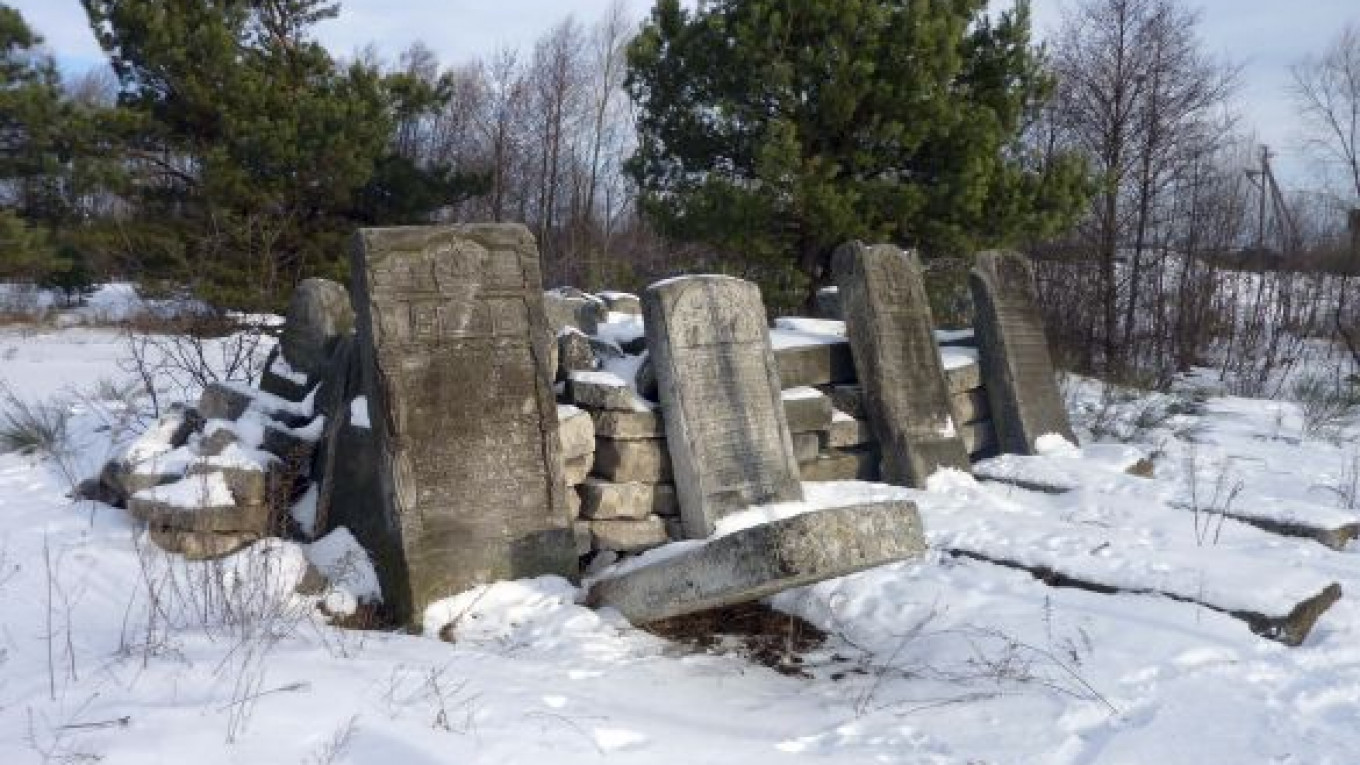BERLIN — Jewish organizations have initiated a joint effort to identify, protect and memorialize thousands of forgotten Holocaust mass graves in Russia, Ukraine, Belarus and Poland.
More than 2 million Jews in Eastern Europe were rounded up by the German military and shot, their bodies left in unmarked mass graves, even before the Nazis began to organize mass killings at the gas chambers in death camps like Auschwitz and Belzec.
"Entire communities were wiped out, and those few who by some miracle survived seldom returned," Rabbi Andrew Baker of the American Jewish Committee told reporters in Berlin. Most locals who witnessed the crimes are either dead or very old, he added.
"Only a short time is left to collect their testimonies, which are often crucial in identifying the exact killing site," he said Friday.
The committee along with Germany's Central Council of Jews and the German War Graves Commission will coordinate work by groups in Russia, Ukraine, Belarus and Poland that are talking to witnesses, identifying mass graves, marking and protecting them and establishing memorials.
The German Foreign Ministry is donating 300,000 euros ($404,000) to the project, Baker said.
Several organizations have been working on the ground for the last few years trying to identify the killing sites based on witness accounts as well as German and Soviet historical documents.
Among them is Lo Tishkach, which has created a database of more than 10,000 Holocaust mass graves and Jewish cemeteries across Ukraine. Another organization, Yahad-In Unum, will conduct 15 research trips in Eastern Europe this year alone to identify further killing sites.
The teams will be "driving up and down the back roads of small villages in Ukraine, Belarus, Russia and Poland, knocking on doors and asking the elderly … to recount what they have seen during the war," said William Mengebier of Yahad-In Unum.
Some 1.4 million of Ukraine's 2.4 million Jews were executed, starved to death or died of disease during World War II. Another 550,000 to 650,000 Soviet Jews were killed in Belarus and up to 140,000 in Russia, according to the U.S. Holocaust Memorial Museum. Most of the victims were women, children and the elderly.
The slaughter, which followed Germany's invasion of the Soviet Union in June 1941, is sometimes called "Holocaust by Bullets." It was the opening phase of what became the Nazis' Final Solution.
Last month, a group of researchers from the different organizations traveled to five different killing sites in western Ukraine that are in urgent need of protection, said Jan Fahlbusch of the American Jewish Committee, who is in charge of coordinating the joint project.
Among those sites was a mass grave in Rava-Ruska in western Ukraine. Some 7,400 Jews lived there until they were forced into a ghetto in August 1942 by the German army. In December 1942, about 5,000 of them were shot and thrown into a mass grave in front of the local Jewish cemetery.
The site is today covered by a swamp but, as part of the new project, it will be sealed according to Jewish burial law and a memorial will be erected to remember those who died there.
"It is important that the people who live there know what happened in their home villages some 70 years ago," Fahlbusch said. "There's a lot of ignorance among the local population, and it is important to raise awareness to the crimes of the past."
A Message from The Moscow Times:
Dear readers,
We are facing unprecedented challenges. Russia's Prosecutor General's Office has designated The Moscow Times as an "undesirable" organization, criminalizing our work and putting our staff at risk of prosecution. This follows our earlier unjust labeling as a "foreign agent."
These actions are direct attempts to silence independent journalism in Russia. The authorities claim our work "discredits the decisions of the Russian leadership." We see things differently: we strive to provide accurate, unbiased reporting on Russia.
We, the journalists of The Moscow Times, refuse to be silenced. But to continue our work, we need your help.
Your support, no matter how small, makes a world of difference. If you can, please support us monthly starting from just $2. It's quick to set up, and every contribution makes a significant impact.
By supporting The Moscow Times, you're defending open, independent journalism in the face of repression. Thank you for standing with us.
Remind me later.






